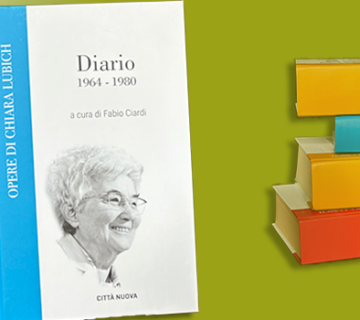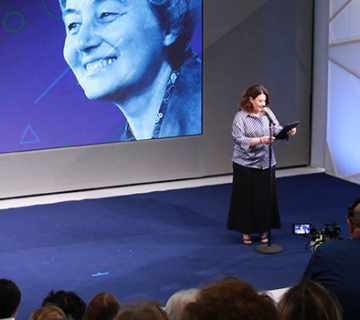
It was entitled “Misa trovera del Abandonado”: it’s composer, Dr Jesús Lozada, Cuban poet and writer, wished to express with the rhythms of trova and with deep and inspired texts, his filial love and gratitude for Lubich. The trova is a traditional Cuban rhythm, associated with the figure of the trovadores, travelling musicians. Through his writing, Lozada expressed his understanding of Jesus’ cry on the cross: ‘Why have you forsaken me? ‘. This is one of the pillars of the spirituality that derives from the charism of unity, and that can “enlighten economics and politics, theology and philosophy, science and art”.
Augusto Blanca, a noted Nueva Trova composer and songwriter, set the words to music, while Leonardo Barquilla did the musical arrangement for the choir and orchestra.
This was the basis that lead to an experience of artistic sharing, wherein Lozada involved some of the most significant musical personalities on the Island. They were engaged in several days of work, to give the best of themselves, guided only by a great love and devotion.
The concert was held on the 24th May in the beautiful Dominican church of San Juan Letrán, in the Vedado district. The audience – more than 300 people – included the Apostolic Nuncio in Cuba, Archbishop Bruno Musarò, representatives from the ecumenical sphere, delegates of some embassies, and many artists. The event’s multifacetedness was grasped by Maria Voce, president of the Focolare Movement, who in a message send “wished all those present to experience that atmosphere of true fraternity that Chiara had always promoted and in which the Focolare Movement is engaged. Thus, even through music, we can help forge bonds of esteem and collaboration throughout the world”.
 The program displayed an ensemble performance by 16 musicians of the National Symphony Orchestra directed by maestro Leonardo Barquilla, together with the international renowned Exaudi choir, directed by the soprano Maria Felicia Pérez. Her voice, one of the most beautiful of Cuba, was moving in the interpretation of “Maria de la soledad”, which expressed the pain of a mother on the death of her son. A rousing standing ovation sealed this artistic fellowship; the musicians involved expressed their determination to continue the artistic sharing embarked upon.
The program displayed an ensemble performance by 16 musicians of the National Symphony Orchestra directed by maestro Leonardo Barquilla, together with the international renowned Exaudi choir, directed by the soprano Maria Felicia Pérez. Her voice, one of the most beautiful of Cuba, was moving in the interpretation of “Maria de la soledad”, which expressed the pain of a mother on the death of her son. A rousing standing ovation sealed this artistic fellowship; the musicians involved expressed their determination to continue the artistic sharing embarked upon.
Cuban journalist, Germán Piniella, commented in one of the leading newspapers on the Island: “The merit of this first mass composed by a Cuban trovadore, is the ability to move both believers as well as those who are not. After all, both can share the artistic sensibility in front of an artistic fact of this significance, following the saying that “giving is better than receiving”; something that every honest mind can accept”.


 Italiano
Italiano Español
Español Français
Français Português
Português



Idea magnifica! Es una pena no haber participado.